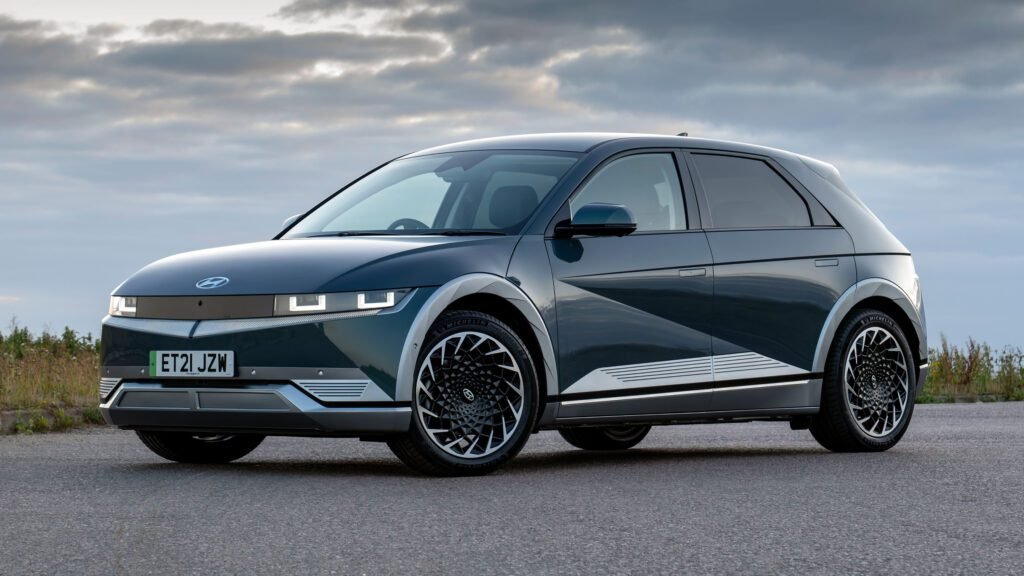As India moves towards a greener future, the electric vehicle (EV) market is expected to experience “strong and steady” growth until 2030, according to Hyundai Motor India’s Managing Director, Unsoo Kim. Hyundai, one of India’s leading automobile brands, is confident that this growth will be powered by increasing government support, industry investment, and the collective focus of companies on electrification in the local market.
Hyundai India MD Predicts Strong & Steady EV Market Growth Until 2030: What It Means for India’s Electrification Future
The Future of EV Growth in India: A Promising Outlook
The Indian EV ecosystem is still in its nascent stages, but Hyundai’s MD, Unsoo Kim, is optimistic. In a recent statement, he emphasized the early stage of electrification in the country but predicted robust growth over the next decade. Kim attributed this to two main factors: strong government leadership and increased focus by OEMs (Original Equipment Manufacturers) on the Indian market.
“We believe that the Indian EV market will grow steadily by 2030, mainly due to the government’s active role and the automotive industry’s focus on this emerging segment,” said Kim. Hyundai, with access to advanced global battery technology, is positioning itself to play a key role in developing a strong EV ecosystem in India.

What’s Driving the Indian EV Boom?
- Government Support: The Indian government’s push for cleaner energy has resulted in several subsidies and policy incentives aimed at promoting EV adoption. This includes production-linked incentives (PLI) schemes and local manufacturing incentives, all of which are helping drive growth in the Indian EV market.
- Surge in Investments: Despite global economic challenges and a “funding winter,” Indian EV startups secured 32 major deals last year, showcasing investor confidence in the future of electric mobility in India.
- OEM Focus on Local Market: With big names like Hyundai ramping up efforts to launch and improve EV offerings, the local market is becoming more competitive, accelerating the shift to electric vehicles.
Overcoming Challenges: The Current Market Scenario
While the future looks promising, there are some bumps along the way. Recent data from the Federation of Automobile Dealers Associations (FADA) revealed an 8% year-on-year (YoY) drop in electric car sales in September 2024, with 5,874 units sold. Despite this dip, Hyundai’s Chief Operating Officer (COO), Tarun Garg, encouraged a broader perspective.
Garg pointed out that India is still at a “low level of electrification” compared to global markets, where EV penetration is significantly higher. He noted, “There’s only one way up,” indicating the long-term potential for growth as the market matures and more consumers adopt EV technology.
Hyundai’s Role in India’s EV Journey
Hyundai Motor India is not just a participant in the EV race; it’s a key player. The company is working on building an EV ecosystem that can leverage its access to cutting-edge battery technologies to benefit Indian consumers. Hyundai’s commitment to the Indian market is further reflected in its upcoming Initial Public Offering (IPO), the largest ever in India, which aims to raise INR 27,870 Cr (approximately $3.3 billion). This will dilute Hyundai Motor Corporation’s (HMC) stake from 100% to 82.5%, with plans to reduce it further to comply with Indian regulations.
Why This Matters for India’s EV Industry
Hyundai’s projected growth in India’s EV sector highlights the tremendous potential for electric vehicles in the country. With Hyundai’s entry, along with strong government policies and an increasing focus on sustainability, the Indian automotive landscape is set to transform. The combination of technological advancements, increased affordability, and public awareness about environmental impact is likely to make EVs mainstream much sooner than expected.
Conclusion
India’s journey toward electrification is still in its infancy, but with the support of global players like Hyundai and the Indian government’s proactive stance, the EV market is set to grow exponentially by 2030. Despite short-term setbacks like fluctuations in sales, the long-term outlook remains positive, with major advancements expected in the coming years.
FAQs
1. Why is Hyundai so optimistic about the Indian EV market?
Hyundai’s optimism stems from the Indian government’s supportive policies and subsidies, along with the automaker’s focus on leveraging its global battery technology to build a robust EV ecosystem in India.
2. What challenges does the Indian EV market currently face?
While there is significant potential, the Indian EV market faces challenges such as lower consumer adoption rates compared to global markets, infrastructure limitations, and occasional dips in sales, as seen in September 2024.
3. What role does the government play in the growth of the Indian EV market?
The Indian government plays a crucial role through its subsidies, policy incentives, and production-linked incentives (PLI), all aimed at promoting local manufacturing and EV adoption.
4. What is Hyundai’s upcoming IPO, and why is it significant?
Hyundai Motor India is planning India’s largest-ever IPO, aiming to raise INR 27,870 Cr (around $3.3 billion). This IPO is significant as it showcases Hyundai’s confidence in the Indian market and its long-term commitment to the country’s electrification journey.
5. What kind of EV technology is Hyundai bringing to India?
Hyundai is focusing on cutting-edge battery technology, global expertise, and the development of a comprehensive EV ecosystem. This includes robust security measures, improved performance, and long-lasting battery life for Indian consumers.
With Hyundai’s strategic investments and growing consumer interest, the future of the Indian EV market looks bright.


